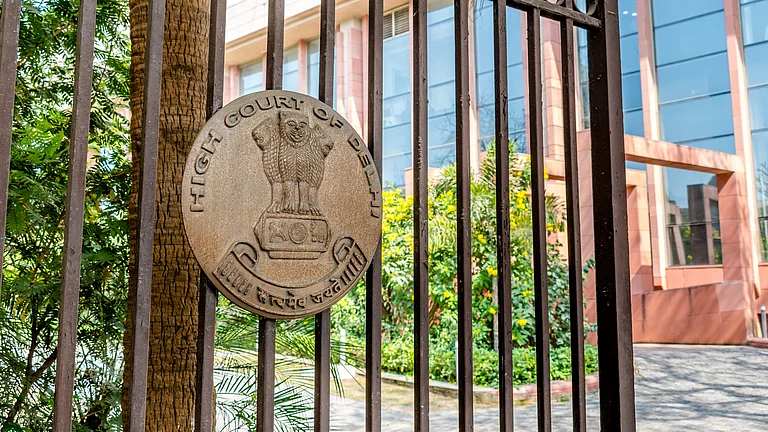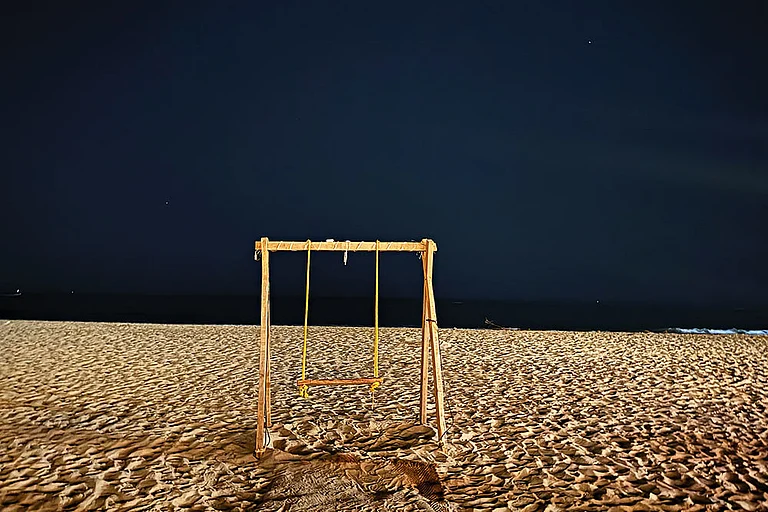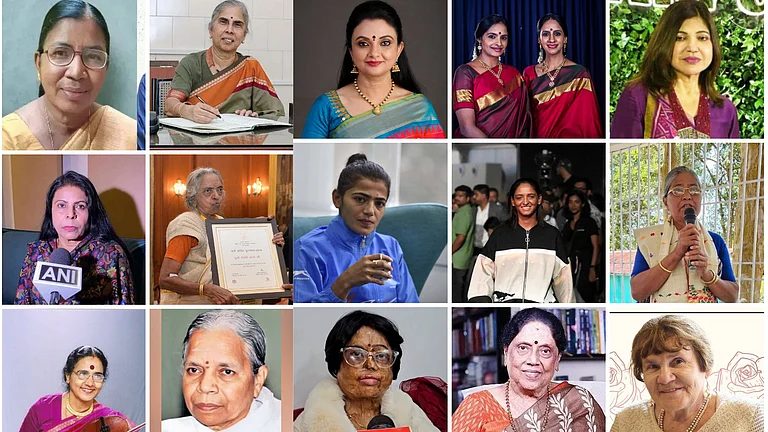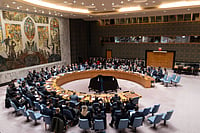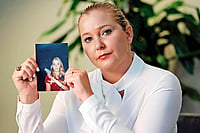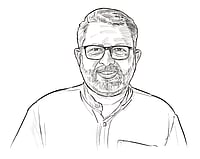
August is designated ‘Women in Translation Month’.
Women translators have become more visible in the ecosystem.
The Indian translation firmament is teeming with stars.
The mellow month of August—christened ‘Women in Translation Month’ by academic and blogger Meytal Radzinski in 2014—reminds us of the vital role women translators play in bridging the gaps between languages and cultures and broadening readers’ horizons. When Radzinski surveyed the world of translated literature, she realised it was mired in gender bias. Less than 30 per cent of the books translated into English at the time were written by women. The ‘Women in Translation Month’ project—now a prominent feature on the calendars of readers, publishers and book bloggers everywhere—was sparked by this alarming fact. The project continues, raising awareness about the under-representation of women in translated literature, advocating for women’s voices and perspectives to be heard, and encouraging translators and publishers across the globe to explore literature from a new vantage point.
Women translators are significant drivers of the project. Their dedication and hard work, which are often not adequately rewarded financially, have introduced readers to several women writers whose works were not originally written in English. Award-winning Indian translator Jayasree Kalathil points out that many talented women have been working in the field of translation for decades. Speaking of literary translations as a genre, Kalathil says that publishers today are more open to publishing translated works and marketing them with the same respect they show to other literary works. “I hear readers are reading more literary translations,” she notes. “There are awards and accolades that give equal footing to translated works and literature written in English. If women translators seem more visible in this ecosystem, it’s because they excel at what they do. And not necessarily because there has been any specific change that has made the field of translation more favourable to women.”
Speaking at ‘Bhashavaad’, the second edition of the national conference on translation organised in Delhi on August 29-30 by Ashoka University’s Centre for Translation in collaboration with the New India Foundation, well-known linguist and author Peggy Mohan pointed out that this is a hopeful time for translated works in India. “We are standing at a luminous moment where translation is beginning to connect us,” she said. “The demand is coming from the public, people who don’t feel completely happy reading in English but know important conversations are happening and want to join them…I am getting a strong feeling that this year is the year of translation.”
Year of Translation
If this year is indeed the year of translation, women translators are definitely playing a stellar role in it. Not just in India, but the world over. The list of women translators at work today in India is as long as it is impressive. Early this year, Deepa Bhasthi, who translated Kannada writer-activist Banu Mushtaq’s short story collection Heart Lamp into English, became the first Indian translator to win the International Booker Prize, one of the most influential awards for translated works worldwide. Eleven women translators made it to the Prize’s Longlist in 2025—a remarkable count!
Daisy Rockwell, the translator of Geetanjali Shree’s Booker-winning novel Ret Samadhi (Tomb of Sand), has brought us excellent English translations of the works of many women writers who write in Hindi. The Indian translation firmament is teeming with bright stars, and it would be impossible to list them all here. To name just a few: Shanta Gokhale, Shanaz Habib, Mitra Phukan, Meena Kandasamy, Gita Krishnankutty, Prema Jayakumar, Vasanthi Sankaranarayanan, Fathima E.V. Lakshmi Holmström, Rita Kothari, Jenny Bhatt, Rakshanda Jalil, J. Devika, Ranjita Biswas, Saba Bashir, Tejaswini Niranjana.
On other shores, Anne Goldstein, who brought Italian writer (and global literary enigma) Elena Ferrante’s work to the Anglophone readership, has also translated Jhumpa Lahiri’s non-fiction debut, and Buzzi, Pier Paolo Pasolini and Alessandro Baricco’s writings. Deborah Smith, British translator of Korean literature and founder of Tilted Axis Press, shot to fame with her translation of Nobel Laureate Han Kang’s novel The Vegetarian. The translation garnered Han a global readership. And it won Han and Smith the 2016 International Man Booker Prize. Smith has also translated many other Korean works such as Bae Suah’s Recitation and The Accusation by North Korean dissident writer Bandi. Though she has stepped down as Publisher of Tilted Axis Press and is taking a break from translation itself, Smith set up the non-profit publishing house to give genre-defying translated literature a fighting chance, and to support books that “might otherwise not make it into English”.
State Support and Subsidies
Speaking at the first edition of ‘Bhashavaad’ in 2024, Urvashi Butalia, publisher and founder of feminist imprint Zubaan Books, had delved into the economics of translation. She had pointed out that translation is an expensive business. And it remains so in 2025. Compared to most other countries on the international stage, India lags behind in subsidising translation work, investing in the promotion of translated works, and making them available to readers worldwide.
I played back Butalia’s remarks from the first edition of the conference in my head as the second edition progressed, wondering to what extent, if any, things have improved in India for translators on the financial front. She had said, “If translators are to be paid fairly for their labour, which is really intensive, it doesn’t cut it to pay them half the royalties of the author because that’s a really small amount…So, until translation is treated as an art, something that is really respected and paid for, translators are going to be seen as suffering people, or publishers are going to settle for less from translators who may not be really qualified to translate, but because they don’t have to pay that much, they can do that.”








